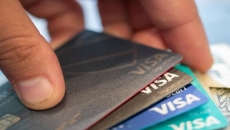Photo courtesy of IStock.
New Delhi, Dec 16 (IANSlife) The year-end is just around the corner, and with that, comes the plethora of sales from fashion houses and e-commerce websites trying to make our holiday season ready. The year-end clearance sales and discounts and customers looking to indulge in some retail therapy give scammers ample avenues to carry out their fraudulent activities. Here are five tips from Truecaller on how to stay protected against financial fraud during the year-end sales:
Be vigilant about suspicious logins and messages
Most shopping and e-commerce websites ask their users to create an account to access their collection or place orders. When creating an account, users have to provide an e-mail address or a phone number on which they receive updates on the latest offers, the orders they have placed, and exciting deals they can avail of. These modes of communication can be incredibly useful for users to track the orders being placed, as well as their login activity. Very often, scammers can get access to account information, log into user accounts, and place orders using the stored payment options. Being vigilant about suspicious logins and order messages allows users to be informed when there is suspicious activity, or when there is an order that they have not placed, which can then be immediately reported to the support team of that particular website or to a local police authority if a monetary transaction has been carried out.
Only browse secure and authorised websites.
One of the most common tactics being used by scammers to steal information is by providing a link to a website that looks similar to a secure and authorised website, with slight modifications that are unnoticeable at first glance. For example, a scammer may send an email to a person containing the logo and link of a commonly used website about an order they have placed or a bill that is due. However, upon inspection, one will easily be able to notice that the website URLs often have an additional letter or extension in them, to mimic a look of a common website. When a user clicks the link, they are often directed to phishing websites that ask for payment or personal information, which is then misused by the scammers. The easiest way to note whether a website is secure is by looking at the URL. Authorized websites will usually have a logo before the 'HTTPS' and will have the exact name or extension that the website is known for.
Never share OTPs with others
To combat scammers from using the payment information of others, banks all over India have initiated a two-factor authentication model. While this has helped combat scams and misuse of financial information to a certain extent, it can still be exploited if a user shares their OTP with others. It is incredibly important to never share your One-time password with anyone and only use it if you are in the process of placing an order, and on a trusted website or app. If you have received an OTP that you haven't initiated, it is important to change your account passwords immediately and notify your bank about this unauthorised transaction. It is also a common policy for employees of an e-commerce website to never ask for OTPs from customers, and representatives asking for an OTP should always be viewed as a red flag and reported.
Don't save your payment details on e-commerce websites for future use
While you may trust certain commonly used websites or platforms, it is always advised to never save your payment details, even if you plan to purchase products from them in the future. This is because if a site is compromised in any way, saved cards and payment information can easily be exploited and accessed by those trying to gain access to mass information. It is also important to note that when you save information on a particular website, they are also stored in your browser data on your computer or phone, and in the event that those are compromised, a scammer or a hacker can easily get access to this information.
Only pick up calls from verified e-commerce businesses or trusted numbers
Phone scams have been some of the most common tactics that scammers often employ because of the lack of security systems with regard to telephonic conversations. Communication platforms like Truecaller can be a helpful tools in identifying calls from verified businesses and raising an alarm about scam calls. It is also important to make sure that you do not pick up calls from foreign registered numbers or suspicious-looking numbers like the ones that start with digits other than 8 or 9. In case, for some instance, you do pick up a call from this, make sure that you stay vigilant, don't share OTP, or follow suspicious instructions being told from the other side. If you do notice any suspicious behavior from a caller, it is important to report them so that proper action can be taken against them and to save others from falling from similar scams in the future.
While there is no foolproof method of avoiding scammers and spammers, there are surely a number of ways in which users can stay safe from this kind of practice. Staying safe when shopping online is important for your own personal and financial safety, and by adopting these practices, you can stay away from those who are trying to compromise millions of people every year.






